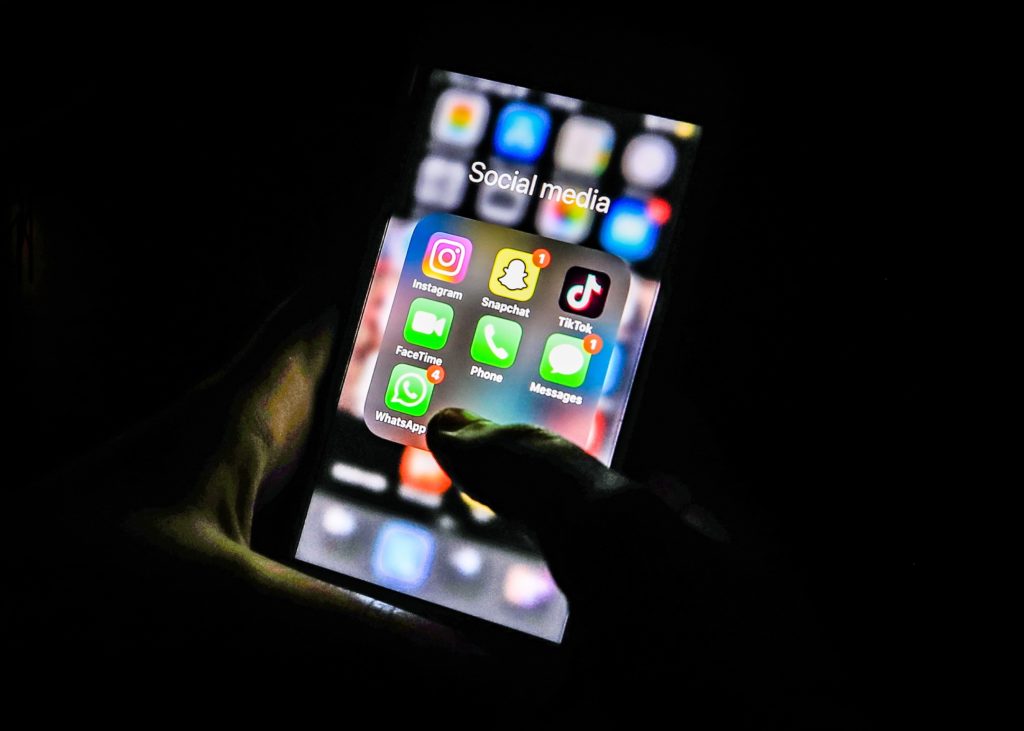Listen to the article
As mental health discussions flourish online, experts warn about misinformation risks
The public conversation around mental health has undergone a dramatic transformation in recent years, with millions of people sharing personal experiences on social platforms, signaling a welcome decline in stigma. Yet this openness brings new challenges as mental health content proliferates across the digital landscape.
Social media platforms have become hubs for mental health discourse, with nearly 90 million posts tagged “mental health” on Instagram and TikTok alone. Terms once confined to clinical settings—gaslighting, trauma, toxic relationships—now permeate everyday conversations. While this mainstreaming represents progress, mental health professionals express growing concern about the accuracy of information being shared.
“Anyone can say anything they want on the internet about any topic,” explains Dr. Taisha Caldwell-Harvey, psychologist and founder of The Black Girl Doctor. “The rate at which something spreads like wildfire has nothing to do with how accurate the information is.”
This viral spread of mental health content has created a troubling trend: creators sharing personal experiences as universal facts. The phenomenon has led to what some professionals see as an overcorrection—where normal emotional responses become unnecessarily pathologized.
“One of the huge dangers is invalidating or downplaying mental illness by equating it to symptoms of a diagnosis,” Dr. Caldwell-Harvey notes. “We can all experience anxiety, sadness, or periods of high distractibility, but that doesn’t mean you have anxiety disorder, depression, or are neurodivergent.”
This misappropriation of clinical terminology can harm those with diagnosed conditions by trivializing their experiences and potentially making society less supportive of genuine mental health struggles. It can also lead people with temporary symptoms to mistakenly believe they have serious conditions.
The trend toward self-diagnosis, particularly with conditions like ADHD and autism, appears driven by a fundamental human need for community and understanding. People experiencing unfamiliar emotional states naturally seek validation and connection with others sharing similar experiences.
“When you’re experiencing something and want to give it language, social media can be a great place to search that term and find other people so you know you’re not alone,” Dr. Caldwell-Harvey explains. “That’s often the first step people take before getting help.”
This search for community reflects a cultural shift led by younger generations. Millennials and particularly Gen Z have embraced mental health conversations, eager to find language that expresses their experiences while shedding shame and stigma.
Mental health professionals acknowledge the positive aspects of this openness while advocating for a more balanced approach. Dr. Caldwell-Harvey describes it as a “pendulum swing” that has gone too far in one direction, expressing hope that “we will settle back out somewhere in the middle.”
For individuals navigating the complex landscape of mental health content, experts recommend approaching online information with critical thinking. “Never self-diagnose on TikTok,” warns Dr. Caldwell-Harvey. She suggests treating mental health information with the same scrutiny one would apply to physical health advice.
“Would you take advice and start taking medication from somebody on TikTok with no qualifications to prescribe medication? You really need to think about your mental health the same way,” she advises. “It’s okay to listen to people’s experiences, but it needs to stop when it comes to ‘now I’m going to do what they did.'”
The conversation highlights the delicate balance between democratizing mental health discussions and maintaining clinical integrity. With research indicating that 50 percent of adults will experience a mental illness in their lifetime, accurate information remains crucial for effective treatment and support.
As this digital mental health revolution continues to evolve, experts emphasize the importance of distinguishing between shared experiences and professional guidance—ensuring that increased awareness translates to better health outcomes rather than confusion and misdiagnosis.
Fact Checker
Verify the accuracy of this article using The Disinformation Commission analysis and real-time sources.




9 Comments
It’s a complex situation. On one hand, the normalization of mental health discussions is hugely positive. But the speed and scale of online sharing also creates risks if users can’t discern fact from fiction. Educating the public on media literacy will be crucial.
This is a really important issue. The mainstreaming of mental health topics is progress, but the risk of misinformation spreading is concerning. Platforms and users need to be vigilant about verifying claims and sourcing info responsibly.
Wow, 90 million posts tagged ‘mental health’ on just two platforms? That underscores how pervasive this issue has become. Kudos to the experts for sounding the alarm on misinformation risks. Balancing openness with credibility will be an ongoing challenge.
Interesting perspective. The mainstreaming of mental health is undoubtedly progress, but the speed of content spread could undermine that if misinformation takes hold. Platforms, creators, and users all have a role to play in promoting accuracy and nuance.
Agree, this is a complex situation with both positives and negatives. The mainstreaming of mental health dialogue is hugely valuable, but the potential for misinformation to proliferate is concerning. A multipronged approach focusing on credibility, moderation, and media literacy will be key.
Interesting to see mental health discussions becoming more open on social media. But you’re right, the rapid spread of content means a lot of misinformation too. It’s important for users to be critical consumers and verify info from credible sources.
This is a really concerning trend. Mental health is such a sensitive and personal issue – the spread of inaccurate information could have serious consequences. Responsible content moderation and user education will be critical to mitigate the risks.
Agree, the democratization of mental health discourse online is a double-edged sword. It’s great that stigma is declining, but the potential for inaccurate, harmful info to go viral is worrying. Fact-checking and media literacy will be key going forward.
This is a really important issue that deserves attention. While the normalization of mental health discussions is progress, the speed of content spread creates real risks around misinformation. Ensuring credibility and user education will be critical going forward.